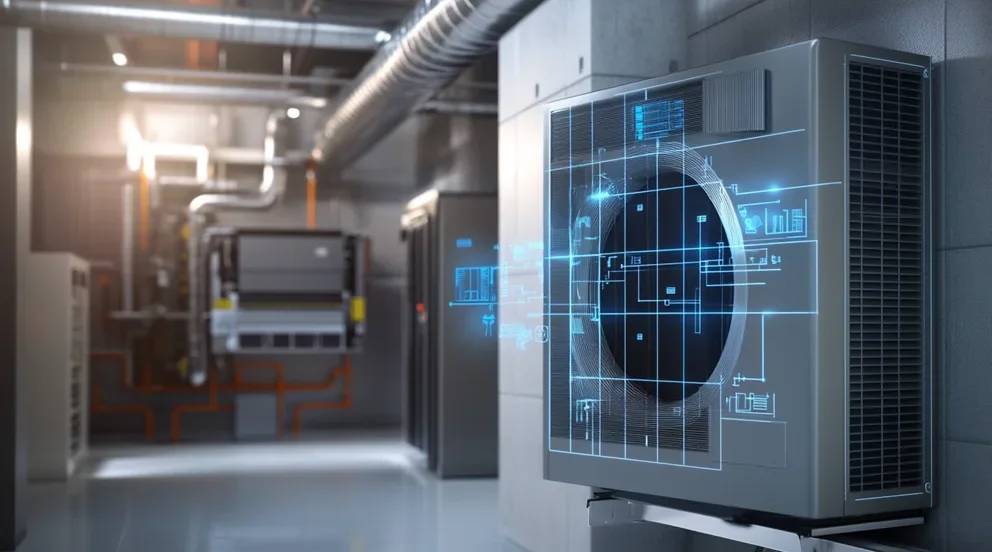HVAC (Heating, Ventilation, and Air Conditioning) referral programs are marketing strategies implemented by companies to encourage existing customers to recommend their products and services to new potential clients. The referring customer usually receives incentives, such as discounts, account credits, or attractive rewards upon the successful acquisition of new customers. This practice leverages word-of-mouth advertising, which often results in high conversion rates because people tend to trust recommendations from people they know over traditional advertising.
Such referral programs not only boost sales but also strengthen customer loyalty. When existing customers become evangelists for the brand, this translates to authentic endorsements, this making it a two-fold benefit: gaining new clients while reinforcing bonds with current ones. The effectiveness of an HVAC referral program hinges on offering enticing rewards that stimulate engagement from current customers, while also appearing irresistibly advantageous to the referrals.
For businesses in the competitive HVAC industry, referral programs help to differentiate from the competition, affirm the brand’s credibility, and generate sustainable customer growth. An HVAC referral program designed with a sharp understanding of the target audience can outperform other marketing strategies by reducing acquisition costs and fostering an organic network of clients who sign up for the long term. It’s based on a mutually beneficial relationship, an essential aspect of today’s customer-centric market.
Implementing a well-structured HVAC referral program could be the secret weapon in a heating, ventilation, and air conditioning company’s arsenal. Not just a booster of client lists but an indicator of customer satisfaction, this incentive-laden venture can ripple across a brand’s market presence. Setting such a motion proceeds under the premise that happy clients are your biggest advocates, ensuring targeted and effective growth.
This article aims to walk through the intricacies of why leveraging an HVAC referral program artfully orchestrated can pay dividends regarding client acquisition and loyalty. We will explore the hallmarks of a successful program that give companies an edge. The intricacies of designing referrals, the motivational psychology behind them, and the ground-field tactics do stimulate ongoing engagement—all pieces in this intricate puzzle.
Navigating customer networks compels an approach that’s both impactful and insightful in an industry bustling with advances and competition. Effortless satisfaction sparks the recommendations that keep the business growing—a quintessential component for sustained prosperity. Stay tuned as we delve into the mechanics of HVAC referral programs, discovering how they spark conversation, cement loyalty, and drive an ever-expanding community of valued clients around warm homes and cool offices.
Exploring the Benefits of an HVAC Referral Program
An HVAC referral program brings extensive benefits to service providers. Not only does it encourage word-of-mouth advertising, the most persuasive form, but it also inspires customer loyalty. By rewarding clients who refer others, a company taps into a low-cost marketing strategy. Such programs typically result in increased customer satisfaction as clients feel valued for their contributions, fostering a positive company image.
Implementing a referral program in the competitive HVAC industry gives an edge to companies. Since HVAC services aren’t frequently sought, referrals become a critical component of sustaining business. Tailored benefits for referrers can range from discounts to complimentary services. These incentives prompt customers to share positive experiences, converting their networks into potential clients, thereby amplifying reach without the hefty marketing spend.
Trust is a core factor in the success of a referral program. People tend to trust recommendations from friends or family above all. An effective HVAC referral program leverages this trust, transforming it into an invaluable asset for the company. Additionally, such endorsements often lead to higher customer retention rates, with referrers invested in the long-term success of the business they support.
Tracking the performance of a referral program can reveal impactful insights into customer behavior. It helps in understanding which incentives work best and which customers are most engaged. These metrics aid in refining the program for even better results, enabling a continual improvement loop in both customer satisfaction and business growth.
In conclusion, an HVAC referral program serves as a linchpin for sustainable growth. It activates current customers as brand ambassadors, extends market penetration, and strengthens trust within the community. By leveraging the program effectively, HVAC businesses stand to gain long-term relationships, increased brand loyalty, and an improved bottom line, making such programs worthwhile investments.
Maximizing your Company’s Growth with HVAC Referral Programs
HVAC referral programs can markedly accelerate company growth, as they harness the power of customer endorsements. When a customer refers a friend, they’re asserting their trust in your services, which can influence others to follow suit. As these referrals increase, so does a business’s potential customer base, spreading awareness far more efficiently than traditional advertising methods could.
Referral programs are not just about gaining new clients; they boost the lifetime value of existing ones. Regular customers become even more valuable when they bring in new business repeatedly. This continuous loop of referrals and rewards strengthens the bond with existing clients while simultaneously branching out to new ones. Such a symbiotic relationship leads to sustained growth as the company benefits from both retention and acquisition.
The strategic design of these referral programs can significantly impact customer participation. Offering attractive and relevant rewards encourages customers to take action. For HVAC companies, this could mean providing service upgrades, discounts on future work, or even seasonal maintenance check-ups. The key is to understand what motivates the customer base and translate that into an effective incentive.
Crucially, an HVAC referral program must also be easy to understand and participate in. Complexity can deter potential referrers, which would limit the program’s effectiveness. Clear communication of the program’s rules and rewards is essential. An uncomplicated process ensures that customers are more inclined to refer their network, knowing that both they and their referrals stand to gain from the exchange.
To summarize, a well-constructed HVAC referral program can act as a catalyst for company growth. It provides a dual benefit by retaining current customers and bringing in new ones, all the while fostering a community of trust. By thoughtfully designing incentives and making participation straightforward, companies can unlock the immense potential that referral programs hold for sustainable expansion.
Why HVAC Referral Programs are Essential in Today’s Market
Within the HVAC industry, referral programs have become increasingly essential, especially in today’s market. They offer an efficient avenue to acquire new customers without the significant costs associated with traditional marketing methods. As markets become more saturated, standing out through a trusted network has an impactful resonance among consumers.
Customer confidence is the cornerstone of effective referral programs. People tend to seek personal recommendations when searching for reliable HVAC service providers, which is why referral programs are perfectly poised to drive business. They not only leverage existing customer bases but also tap into the power of personal connections and recommendations, thereby nurturing trust and credibility in the market.
A well-established referral program acts as an ongoing promotional tool. In the digitally connected world, a satisfied customer’s recommendation can quickly reach a broad audience through social media and other online platforms. Referral programs, therefore, not only create real-time engagement but also aid in building a digital presence, which is crucial in today’s tech-centric market.
Data gleaned from referral programs can be valuable in finetuning marketing strategies. By analyzing which customers refer others most often, companies can identify their most loyal clientele. These insights allow for more targeted marketing and a better understanding of customer needs, fostering an environment for more personalized service offerings.
In essence, HVAC referral programs are no longer a luxury but a necessity for businesses looking to thrive. The personal touch of a recommendation can far outweigh the cold reach of conventional advertising. By effectively harnessing the power of referrals, HVAC companies can bolster their reputation, generate new leads, and maintain a competitive edge in a crowded marketplace.
How HVAC Referral Programs Drive Customer Retention
HVAC referral programs play a pivotal role when it comes to customer retention. These programs create an ecosystem where customers feel valued and, in turn, become more loyal to the brand. When existing clients are rewarded for bringing new business, it reinforces their decision to stay with the company, creating a feedback loop that benefits both the customer and the provider.
Implementing a referral program can foster a sense of community among clients. People enjoy being part of a success story, especially when they directly contribute to it. By engaging customers in the company’s growth, they feel a sense of ownership and pride, which will likely make them think twice before switching providers. This sense of belonging can be a decisive factor in a competitive industry.
The reciprocity implicit in referral programs is psychologically powerful. When customers are rewarded for their referrals, they often feel a compelling drive to continue the relationship. This principle of ‘give and take’ further binds them to the company, as they have a tangible recognition of the value the company places on their business and referrals. Consequently, consistent rewards for referrals leads to ongoing patronage.
Referral programs also open channels of communication between the company and its clients. They provide touchpoints beyond routine service calls, keeping the company top-of-mind for customers. This ongoing dialogue is crucial for building lasting relationships, enabling the company to respond to customer needs promptly and effectively—a factor that plays heavily into customer loyalty.
In conclusion, HVAC referral programs are a potent mechanism for customer retention.
Nurturing Business Relationships through HVAC Referral Programs
HVAC referral programs are an exceptional tool for nurturing business relationships. By centering on the partnership between the business and its clients, these programs create a structured platform for ongoing engagement. They recognize and appreciate customers who play an active role in business growth, contributing to an enduring business-to-customer rapport.
These programs also stimulate newly referred customers to become referrers themselves. This continuum fortifies the network of relationships built around the business, as each referral strengthens the company’s community ties.
Effective communication is essential in maintaining these nurtured relationships. HVAC companies must ensure their clients are aware of the referral program and understand its benefits. It entails being transparent about how the program works and what both the referrer and referee will gain. This clarity helps in building trust, a fundamental block in long-term relationships.
Beyond just initiating new connections, referral programs are integral in appreciating long-standing customers. Such gestures of goodwill solidify existing relationships, making customers feel valued and potentially leading to even more referrals.
In summary, HVAC referral programs are instrumental in developing and maintaining strong business relationships. By providing reciprocal value and actively engaging clients in the company’s narrative, these programs encourage a vibrant network of advocates.



